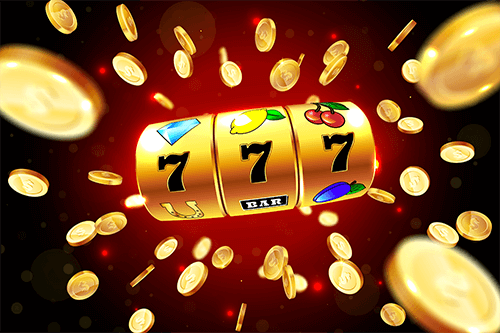What is the Best Payout Slot Machine to Play?
If you’re a fan of online slot real money games, it’s crucial to understand slot machine payouts percentages. This comprehensive guide delves into all the essential details you need to know about online slot payouts. We’ll cover various topics, such as online casino payout percentages, return-to-player (RTP) percentages, house edge, and much more.
What are Slot Payout Percentages?
In simple terms, slot machine payouts percentage represents the average amount of money a player can expect to win in relation to their wager. It is important to emphasize that this value represents an average. While the payout percentage cannot guarantee specific winnings in a single session or even after multiple spins, the more you play, the greater the likelihood that your results will align with the machine’s payout percentage.
Let’s illustrate this with an example:
Imagine your preferred online slot game has a payout percentage of 94%. You place a bet of $100. On average, the machine will provide $90 in winnings to the player.
A higher payout percentage is advantageous for the player. This is why conducting research and focusing on slots with the highest payout percentages becomes essential.
Best Payout Slot Machines
How to Find the Payout Percentage on Slot Machines
When searching for online casinos that deliver payouts, a gre
at starting point is examining the payout percentages. You might be wondering where to find this information, but it is typically straightforward with online casinos.
The payout percentage is often displayed on the rules or information page of the game itself. Alternatively, you can find it on the websites of the online casino or the game developer. If you’re having difficulty locating the payout percentage of a specific slot, conducting a quick Google search with the game’s name along with “payout percentage” or “return to player” can be helpful. If you still can’t find the information, contacting the casino directly through their live chat or customer support tools is a viable option.
In general, online casinos tend to offer higher payout percentages compared to brick-and-mortar casinos. This is primarily because online casinos have lower overhead costs, and multiple players can simultaneously participate in the same game. It is not uncommon to find slots with payout percentages in the high 90s, which can be more challenging to come across in physical casinos.

Return-to-Player (RTP) Explained
RTP, an acronym for “Return to Player,” is an alternative term used to describe the payout percentage. True to its name, it represents the average amount that will be returned to the player as winnings relative to the amount wagered. Expressed as a percentage, a value of 100 indicates an even-money game with no inherent casino advantage.
Let’s illustrate this with an example:
- Suppose your preferred slot machine has an RTP of 95%.
- Over the course of a year, you play this slot machine every weekend and wager $100.
- On average, that machine should yield $95 in winnings.
It’s important to acknowledge that the RTP represents a statistical average. The more spins you play on a specific slot machine, the closer your actual results are likely to align with the RTP.
While the RTP cannot guarantee specific outcomes, it is always prudent to select machines with higher RTP values. This becomes particularly significant if you intend to engage in extended gameplay sessions.
The House Edge Explained
When bettors discuss the “house edge,” they are essentially referring to the same concept as the RTP and payout percentage. The house edge represents the statistical advantage held by the casino, which is inherently embedded in the game rules.
The casino maintains an edge on nearly every bet made within its premises, although the magnitude of this edge can significantly differ depending on the game or even specific bets within the same game. The house edge is depicted as the average percentage of your bet that the casino retains. For instance, a game with a payout percentage of 95% would have a house edge of 5%.
Variance in Slots
When players engage in discussions about slot payout percentages, the topic of variance often arises. Variance, also referred to as volatility or payout frequency, relates to the frequency and size of payouts from a slot machine. Slot variance can be classified into three types:
- High variance slot games: Players may experience longer periods without wins in these slots, but when a win does occur, it is usually significant.
- Medium variance slot games: In these slots, players can expect a moderate frequency of wins, including a mix of small token wins and occasional larger payouts.
- Low variance slot games: These games provide frequent wins, although the winnings are usually small token jackpots.
Typically, casinos and slot games do not display the volatility of a game on the paytable. However, players can find this information online or determine it themselves by playing free slot games. By spinning the reels 100 times in a free game and recording the resulting wins, players can assess the variance of the slot. If paylines are triggered frequently but the winnings are mostly limited to double the original stake, it suggests a low variance slot. Conversely, if the opposite occurs, it indicates a high-variance slot game.
Generally, low-variance slot games are commonly found in penny slots and games with small jackpots, such as Quick Hit. Conversely, it is not surprising that most progressive jackpot slots, like Mega Moolah, exhibit high variance due to the substantial jackpots they offer.











